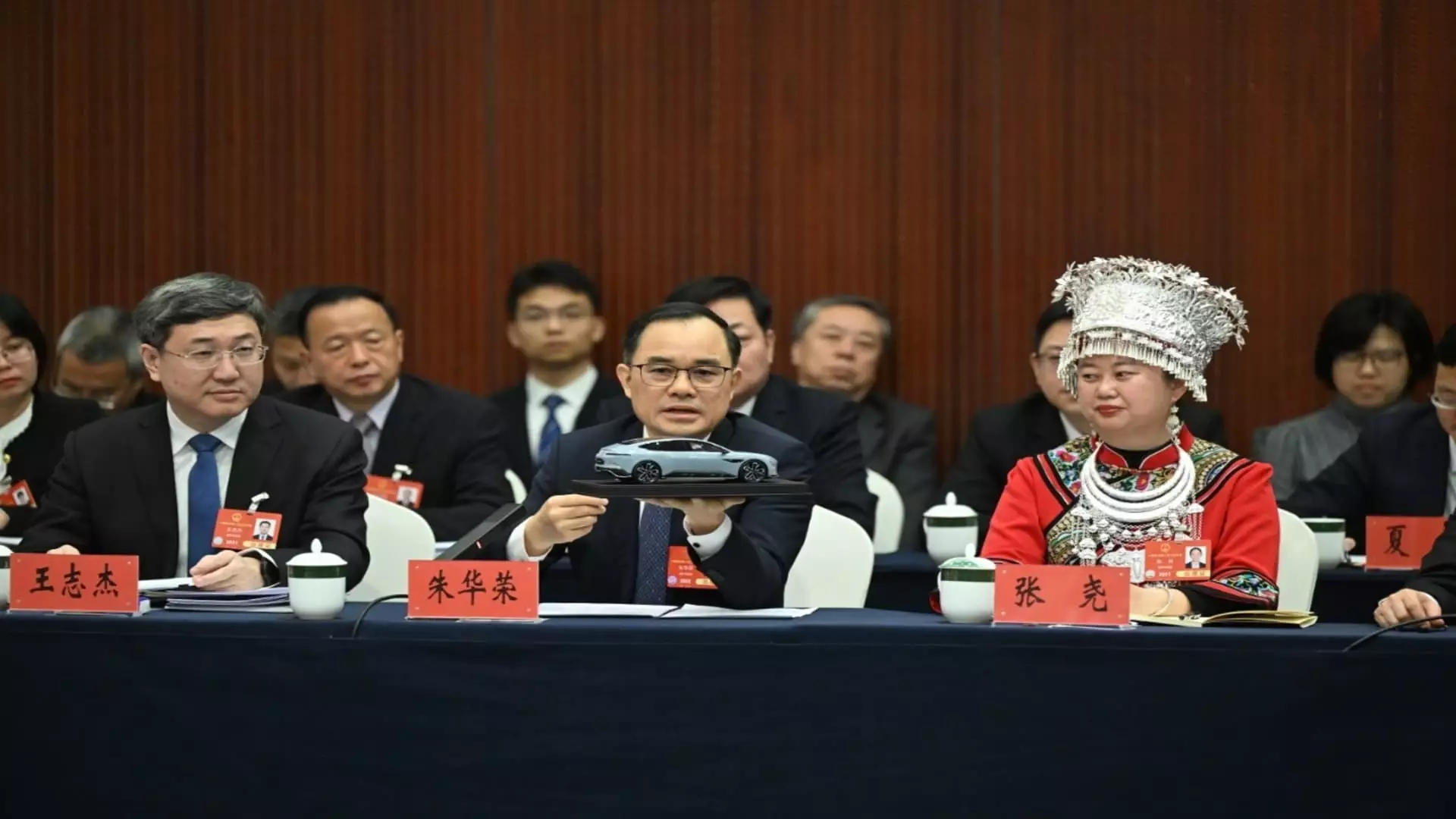The emergence of groundbreaking technologies often acts as a catalyst for significant shifts in investment landscapes. In the case of China’s artificial intelligence (AI) sector, the launch of DeepSeek’s innovative AI model has reinvigorated interest among venture capitalists after an unsettling three-year decline in funding. This revival is noteworthy, occurring concurrently with Insilico Medicine’s closure of a monumental $110 million Series E funding round, led by the reputable Value Partners based in Hong Kong. As the CEO, Alex Zhavoronkov, indicated during a candid interview, the level of interest from investors has reached unprecedented heights, especially with last-minute interest that prompted the company to initiate a “Series E2” round.
The dynamics of the AI industry are rapidly changing, fueled by DeepSeek’s advancements. By harnessing AI solutions from DeepSeek and other cutting-edge firms, Insilico has established itself as a significant player in drug development, boasting ten drugs already cleared for clinical tests across various global markets, including the U.S. and the Middle East. As investors cast their sights on burgeoning opportunities within China, the once-stagnant VC funding landscape is experiencing a transformative resurgence.
The Shifting Investment Climate
For three consecutive years, venture capital influx into China has been waning, slipping to merely $48.86 billion in 2024—the lowest since 2016, according to PitchBook data. Contributing factors were numerous, with regulatory uncertainties in both China and the United States as well as sluggish economic growth being particularly influential. However, as clarity begins to surface, a renewed optimism sweeps through the investment community, reminiscent of the fervor that accompanied internet startups like Alibaba in their earlier days.
As Annabelle Yu Long, founding partner of BAI Capital, pointed out, the race to uncover the next DeepSeek has ignited a wave of enthusiasm among investors. While many are eager to dive into new investments, Long has chosen prudence, opting to bolster her existing portfolio companies. With a handful of firms, including Black Lake and Lejian, excelling through AI integration, it’s clear that focus on established players is a strategy gaining traction. Long’s measured approach underscores her belief in the value of patience in a landscape that has struggled to emerge from the shadows of past investment failures.
Capital Fleeting Towards Known Commodities
The trend toward investing in established AI ventures is gaining momentum, as evidenced by recent funding rounds. Zhavoronkov’s insights reflect a shift in mindset, where Chinese investors, having previously faced significant losses in AI startups, now prioritize proven entities poised for success. This strategy is echoed in the notable $137.68 million raised by Zhipu AI from Alibaba Cloud, which illustrates a pivot toward reinforcing established benchmarks in the market. It’s an acknowledgment that resilience and long-term viability will dictate the future trajectory of AI investments.
Moreover, the Lunar New Year marks a pivotal moment for apprehensive investors. With DeepSeek’s remarkable R1 model launch occurring just before the holiday, it serves not only as an innovation milestone but as a beacon for renewed investor confidence. The showcase of dancing robots at the Spring Festival Gala symbolizes an intersection of culture and technology that has historically galvanized investment trust in China’s tech sector.
A Supportive Regulatory Environment
Recent announcements from high-level officials, including President Xi Jinping, signaling governmental support for AI, further bolster the optimistic investment climate. Such endorsements promise a fertile ground for technological innovation, with initiatives aiming to mobilize a staggering 1 trillion yuan ($137.7 billion) for tech investments. The push encompasses a range of financial aids, intended to pave the way for a comprehensive ecosystem fostering growth in AI capabilities across industries.
However, while China’s domestic conditions seem favorable, foreign investors are compelled to reckon with the complexities of navigating a market with protective regulations and geopolitical tensions. As noted by Xuhui Shao of Foothill Ventures, significant hurdles remain, particularly concerning the access and expansion of China-based AI firms outside their borders. Nevertheless, the depth of engineering talent and innovative capacities within China remains irrefutably strong, suggesting that breakthroughs will continue to emerge, albeit against a backdrop of intricate investment landscapes.
The Future: A Blend of Caution and Opportunity
The renewed interest in China’s AI sector signals more than just a financial resurgence; it represents a cultural shift where technology is not merely a byproduct of capitalism but a vital cog in the societal wheel. As China moves towards a robust embrace of AI applications, it is critical for both local and foreign investors to prepare for an evolving paradigm. Investing in AI is no longer a gamble but a strategic initiative that could shape the future of various industries. As new players emerge and established names fortify their positions, the landscape is ripe for innovative collaboration and groundbreaking discoveries, setting the stage for an invigorated chapter in global AI development.

